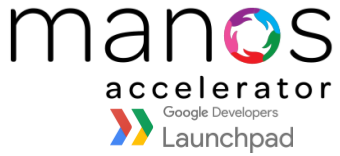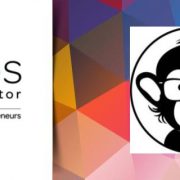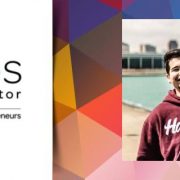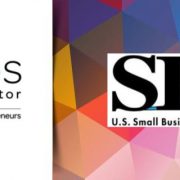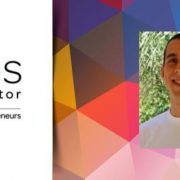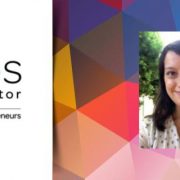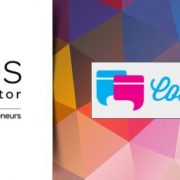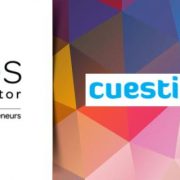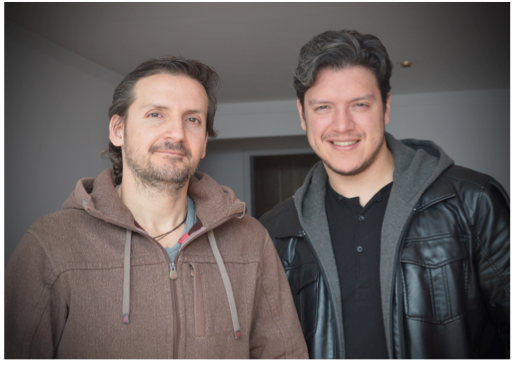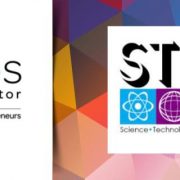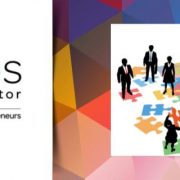As the CEO of Manos Accelerator, I truly enjoy meeting entrepreneurs who are passionate and at times crazy about what they are creating as they talk about their startup. Hearing pitches about “aha” moments vary from founder to founder. Many of these stories are frequently about the incredible challenges and pressures of breathing life into a company and trying to survive. At times, I, myself, have wondered, “is it worth it?” Being an entrepreneur is not easy and it is supposed to be difficult. That’s part of the journey of innovating, failing and learning – isn’t it? As a founder of a startup, you work tirelessly on something you believe in and pour everything you have into your venture. You live in a constant state of risk, reward, loss and gain. Entrepreneurship is probably one of the most difficult things I can imagine someone doing. Essentially, someone is disrupting or creating something from nothing – a market, product and/or service. Most entrepreneurs start with an idea, a concept or a dream with little or no money. Most likely, they are doing it alone.
For most Latino entrepreneurs in the United States, the startup journey is even more challenging, especially as it pertains to access to seed capital. Many Latino founders have few wealthy friends or family members to help fund their ideas and get it off the ground. Lack of investment capital is a significant barrier to the growth of these early-stage startups. Why is this the case when there isn’t a shortage of Latinos?
“Undeniably, Latinos have a strong entrepreneurial spirit, stemming from generations of families creating small businesses to generate financial resources. However, many Latinos in this country are first generation entrepreneurs in the tech startups and other scalable business models.” said Angelica Perez-Litwin, PhD, Founder of Latinas Think Big. “They need the support and intelligent guidance of those who have successfully navigated these spaces, and strong connections to influential networks that are willing to invest in their innovation.”
According to the Selig Center for Economic Growth, the population of Latinos is 53 million and in Silicon Valley alone, Latinos make up 33.2% of the total population. They are the fastest growing minority ethnic group and they will represent $1.5 trillion in purchasing power by 2015 (and $1.7 trillion by 2017). By 2050, they represent 30% of the United States population. Additionally, Latino small businesses are growing at twice the rate of the national average – generating over $350 billion in annual revenues. Yet this powerful demographic continues to be ignored by mainstream leadership in business, venture capital and angel investing.
In a recent study by CB Insights, a report found that the percentages of venture capital funding breakdown were as follows: 87% White, 12% Asian, and 1% to Blacks/Hispanic/Native American. This study highlights that the total investments received by Latino founders make less than 1% of all venture capital money. Perhaps that is why Latinos remain the largest unfunded community in the startup ecosystem. This is one of the reasons why I co-founded Manos Accelerator. We are not only focused on startups developing solutions with cool technology but we are also focused in the development of Latino entrepreneurs. Our goal is to help Latino entrepreneurs realize the potential of their idea and to increase the number of Latino entrepreneurs in the global tech community. We are creating an environment in which Latino entrepreneurs from across the US and in Latin America can go from turning their innovative ideas into reality and not feeling a sense of loneliness.
With our first cohort under our belt and our recent announcement of our partnership extension with Google for Entrepreneurs, we plan to have two program cycles in 2014 and two more scheduled in 2015. However, that is not enough to fully realize a “total startup ecosystem” within the Latino community. There is still a missing vital piece to the puzzle. Connecting those who have promising new business ideas to those with access to capital and market savviness are big challenges. With approximately $2.6 billion in venture capital investments in 2013, we need to put more focus on the other side of the startup ecosystem, which is to develop Latinos to become knowledgeable angel investors. We need to create a community where budding Latino entrepreneurs can engage with Latino angel investors to help accelerate the growth of disruptive and innovative companies.
The life of an “entrepreneur” is risky. Everyone knows that and so is the life of an “angel investor” where they lose money taking risks. The game of angel investing in early stage startups is complex – there are times when you make money and others when you lose money. This is the nature of the startup environment and it is not for everyone. According to Bloomberg, 8 out of 10 entrepreneurs who start businesses fail within the first 18 months. That means that 80% of startups crash and burn. So, angel investors need to understand the “in’s” and “out’s” of investing in early-stage companies in order to make smart and calculating decisions.
To create this concept of a “total startup ecosystem” strategy, Manos Accelerator is launching the “Manos Angel Network” along with the Angel Bootcamp program for new and seasoned angel investors. Angels from this network would be exposed to a robust curriculum that educates Latinos on how to make angel investments in early-stage startups. These interactive investing sessions are led by seasoned veterans and industry insiders from Silicon Valley. The Angel Bootcamp program runs in parallel with the 12-week accelerator program so that the Latino startups can tap into a new class of trained investors.
The Manos Angel Network’s mission is to create and develop a new generation of Latino angel investors by accomplishing three complementary goals:
- Attract and develop a strong and robust network of Latino seed stage investors.
- Attract and invest in Latino entrepreneurs and startups.
- Support the angel network with resources such as the Manos Angel Bootcamp, which will help build the startup ecosystem of tech innovation and entrepreneurship within the Latino community.
One thing I learned from living and working in Silicon Valley, is that you need to “think big” in order to move the needle. It is time to make a difference by attracting more Latinos both as “entrepreneurs” and as “investors” to co-exist in the rest of the hi-tech world. A true startup ecosystem will only begin to form by increasing the number of Latino-led startups with the accelerator program and having more capital in the startup ecosystem with the Manos Angel Bootcamp and Network. Initiatives like these are vital in the continuous growth of the entrepreneurial community. They focus on grooming angel investors to support the growth of current Latino entrepreneurs while extending its reach and plugging into the overarching global tech community.
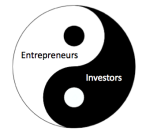
Manos Accelerator is not only fostering entrepreneurship and supporting Latino-led startups, but also building a new breed of angel investors with the Angel Bootcamp. The vision is to have Latino angels gain more experience, invest and lead, as well as for new companies to form, scale and succeed. These efforts will, undoubtedly, promote a new generation of Latino entrepreneurs and angel investors who are a key part of a vibrant ecosystem.
To learn more about how the Manos Angel Bootcamp is changing the face of angel investing, click here. The Manos Angel Bootcamp has opened a call for applications for its upcoming program in Silicon Valley, which will run from June 13 to August 22, 2014. For more information, please send an email to: angels@manosaccelerator.com.
